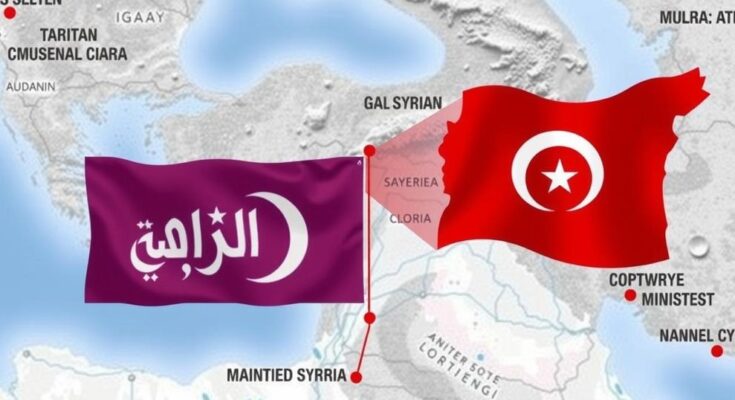Qatar has dismissed reports of reviving a pipeline project to transport natural gas to Europe through Syria and Turkey, calling them speculative. The focus is now on humanitarian support in Syria as analysts express skepticism over the project’s feasibility due to economic challenges and Qatar’s shift towards expanding LNG exports.
The Qatari Foreign Ministry has officially dismissed reports suggesting the revival of a pipeline project intended to transport natural gas from Qatar through Turkey and Syria to Europe. The Ministry characterized these claims as mere speculation. Majed bin Mohammed al-Ansari, the Ministry spokesman, reiterated that Qatar’s current focus is on supporting Syria’s stability and meeting humanitarian needs rather than pursuing the pipeline project. This comes in the wake of renewed discussions following the recent changes within Syria’s governance, prompting various stakeholders, including Turkish officials, to entertain the idea of revitalizing the previously shelved Qatar-Turkey Natural Gas Pipeline project.
Initially proposed in 2009, this $10 billion project aimed to facilitate gas transportation from Qatar’s South Pars/North Dome field through several nations to European markets. However, the previous Syrian administration had not prioritized this initiative, favoring Russia’s established role in supplying gas to Europe. Qatar’s strategic pivot emphasizes stability and humanitarian assistance over energy export ambitions.
Amid experts’ skepticism regarding the feasibility of the pipeline, analysts indicated economic and geopolitical challenges. Sohbet Karbuz, an oil and gas analyst, pointed out that Qatar’s LNG capacity expansion makes a pipeline project impractical since it needs buyers for its increased production. Similarly, other experts underscored the logistical complications of constructing a pipeline across unstable regions, suggesting that Qatar instead focus on maximizing its LNG exports as a more viable alternative.
The article discusses recent developments regarding a potential gas pipeline from Qatar to Europe via Syria and Turkey following the instability in Syria. The original proposal for the Qatar-Turkey Natural Gas Pipeline was established in 2009 but was halted due to political disagreements, particularly concerning Syria’s alignment with Russia in energy supply matters. As Qatar plans to increase its liquefied natural gas (LNG) export capacity, analysts and officials have revisited the conversation surrounding this gas pipeline, prompting skepticism and concerns about its economic viability.
In summary, Qatar has categorically ruled out the revival of the halted gas pipeline project to Europe through Turkey and Syria, labeling current discussions as speculative. The focus remains on humanitarian and technical assistance in Syria, along with pressing logistical and economic challenges presented by such a pipeline. Industry experts concur that prioritizing LNG exports may be a more prudent and practical option for Qatar in the face of regional instability and changing energy demands.
Original Source: www.turkishminute.com




